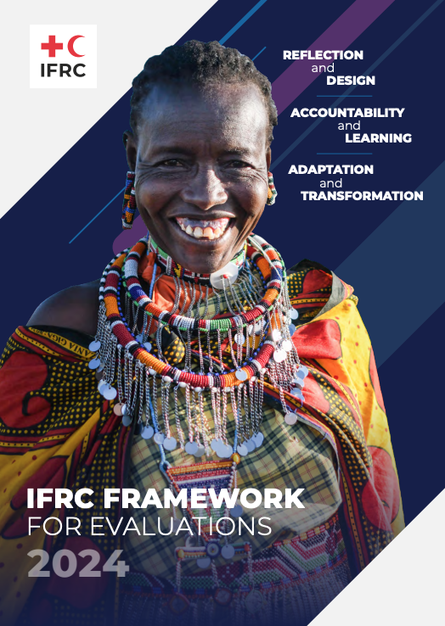
The purpose of the IFRC Framework for Evaluation is to guide how evaluations are designed, planned, managed, conducted, and utilized by the Secretariat of the International Federation of Red Cross and Red Crescent Societies and its network.
IFRC Secretariat evaluations serve four key purposes:
- Improve the quality and outcome of the IFRC work and ultimately mission to help those in need.
- Contribute to organizational learning.
- Uphold accountability and transparency.
- Promote and celebrate IFRC's work.
The content of this framework is organized into four additional sections. Section 2 provides an overview of the concept and role of evaluation in the Secretariat. Section 3 identifies the evaluation criteria that inform what IFRC evaluates; Section 4 identifies the evaluation standards that guide how IFRC evaluates; and Section 5 expands upon the standards with specific practices to guide the evaluation process.
While this framework seeks to provide some practical guidance to its implementation, it is beyond the scope of the framework to provide complete evaluation guidance. Instead, the framework identifies key evaluation practices, which can be complimented by additional guidance and/or tools listed in Annex 1: Resources.
This framework is intended for two audiences. First, it is intended to guide people involved in commissioning, managing, or conducting evaluation/s. This includes those responsible for operations, programme and project management, policy development and review, strategic planning, evaluation capacity building and training, and the evaluator/s themselves. Second, this framework is intended to inform and assure other stakeholders in the evaluation process, i.e. donors and those individuals we are accountable to (e.g. affected population), of key practices and ethical commitments expected from an IFRC-led evaluation work.